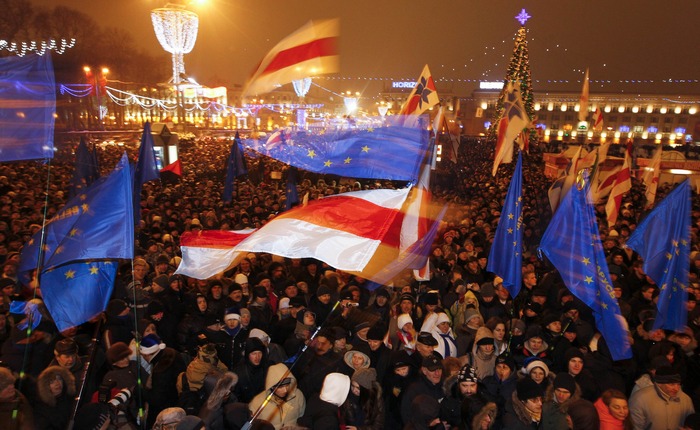Andrei Sannikau: Belarus Without Lukashenka Is Awaited in Europe and in Russia
23- 19.12.2020, 8:01
- 192,571
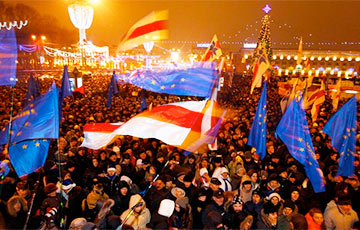
Belarusians are a very rich people.
Today is the 10th anniversary of the legendary Belarusian Square. December 19, 2010, became the forerunner of the Belarusian revolution, believes Andrei Sannikau, one of the main participants in those events, presidential candidate, leader of the civil campaign "European Belarus." Charter97.org spoke with the politician about the lessons and parallels between the 2010 and 2020 election campaigns.
- Andrei Alehavich, 10 years have passed since the Square on December 19, 2010. How, in your opinion, these events influenced the Belarusian revolution?
- I think that in 2010 we were participants and witnesses of the popular uprising, which became the forerunner of the revolution taking place today. 2010 showed the way to go, showed what should be done and what should not be done.
Unfortunately, as it happens, many lessons remained unlearned, so the current stage of the Belarusian revolution is facing difficulties.
What I'm talking about? In a dictatorship, colors cannot be distinguished. This phenomenon is deadly, dark for any people, any state, and the attitude towards it should be fundamentally negative among all progressive social forces. The search for shades of gray in black only strengthens the regime, strengthens the dictator, strengthens the repressive apparatus.
In 2010, only the website Charter-97 demonstrated a principled attitude towards the dictatorship and, therefore was, perhaps, the only truly independent mass media that consistently advocated the need for changes and called to go to the Square for this. But some "independent" media had some strange attitude towards our team, sometimes even hostile: "Why are you exacerbating the situation here, rocking the boat? In general, we do not live so badly."
This year, we saw that new media - the independent telegram channels, all social networks, YouTube bloggers, even chats - began to speak with one voice: we live badly, and, under this regime, we will live even worse; it is impossible to continue living like that. And this has ensured, in general, the mass character of the current stage of the revolution.
The year 2010 showed that the regime is terrified of people in the Square and that it cannot be knocked out without the street. If it was possible to continue the mass protests in that year, I think that today there would have been no Lukashenka in power. But then, people probably still possessed some reserves, not even material ones, but some reserves of a complacent attitude towards life under the dictatorship and, therefore, did not dare to continue open resistance.
Yet in 2010, the regime suffered a significant blow, after which it did not recover. Yes, in 2015, the dictator again reassigned himself, organizing "elections" only with fake candidates, but this did not solve any problems, primarily economic ones.
2020 is a direct continuation of 2010 with new people, hundreds of thousands of whom did not replace the opposition but became real opposition to the dictatorship themselves.
- You had to go through prison and emigration. Do you regret that you participated in these elections as a presidential candidate?
- No, I don't regret it. The decision to participate in the elections was not so easy. The decision was a team decision, my personal decision, and my family's decision. The principles on which the revolution is taking place today are the very ones that our team and I have defended and are defending: we must not allow this dictatorship to continue to rule in our Belarus.
I have no regrets because I fulfilled my obligations to people. I said that I would be on the Square until the end, and I was until the end. However, it was not easy even to reach the election day and the Square. Before the election day, there were many provocations, not only by the special services but also by some teams of candidates who participated in the elections. After the elections, as we know, the fake candidates were revealed quite quickly, practically on the night after the vote. They testified against me in court; 5 or 6 presidential candidates testified against me in court, I don't remember now. The only people I maintained relations with at that time and somehow coordinated my activities were Uladzimir Niakliaeu and Mikalai Statkevich, who remained in opposition and who did a lot to ensure that 2010 took place, that 2020 took place. The others didn't interest me because they were fake, and all their tricks and machinations were absolutely clear.
Then, of course, when we were thrown into prison, it was not easy to continue negotiating behind bars and still try to change the situation in Belarus. Then, after all, the security forces noticeably swayed. They are cowardly in our country; in general, no one dares to become a power leader of the revolution. But then it was noticeable that they swayed and began to have conversations that went beyond interrogations.
In the KGB prison and then, at the slightest opportunity, I continued to say: let's change something if only to avoid the deepest crisis in the country. It would have been if the Kremlin had not saved the dictator again to tie him even more to Moscow. Only the Kremlin helped to avoid default in Belarus by chopping off our strategic gas transportation system, which Lukashenka secretly sold to save his own skin. Unfortunately, we do not have nationally oriented figures in this regime, although even criminals are different. There are criminals who at least understand that the fatherland must be defended and not traded. We know this from our rich history, the history of wars and redistributions, and we have experienced it in Belarus as nowhere else, probably.
Therefore, yes, there were conversations within the regime, but there were no sane leaders among the siloviki. Although what I talked about in prison (by the way, my friend and colleague Dzmitry Bandarenka also spoke about this in prison - we then compared our conversations, and they coincided in many ways), I think that some part of settled in their heads. Unfortunately, then purges took place, as always happens: after the opposition is purged, there is always a purge of the security forces, sometimes more harsh and senseless, simply out of fear. Apparently, those who could at least think something and were ready to listen to us were removed.
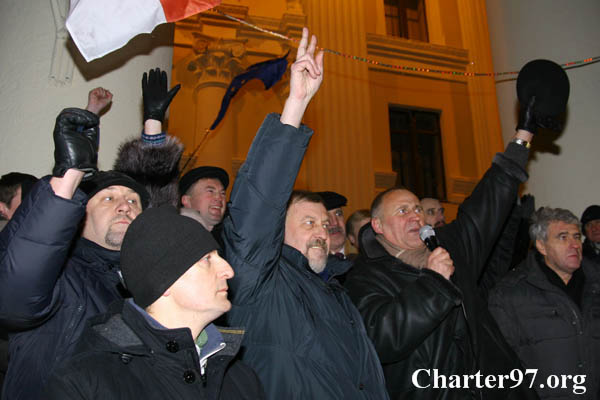
- What are the similarities and differences between the 2010 and 2020 election campaigns?
- The similarity is that both then and now, the campaigns became serious challenges to the dictatorship. This was the case in 2010; it was repeated in 2020 with greater force. I am glad that after 2010 society has noticeably changed for the better: things began to be called by their proper names - the dictatorship began to be called a dictatorship, although, before that, many were sickened by this.
It became clear that no half measures can be used to fight the regime, that if you appeal to the legality of the criminals and observe their rules, and not the law as it should be, this will inevitably lead to defeat.
The difference is that the protest took to the streets without leaders - they were all imprisoned. Until now, there are real leaders in prisons who would not only continue to put pressure on the regime but also, I think, would have already led to a situation of power transit and would not have been engaged in imitation of frantic activity. This is the main difference and, probably, with all the scale of the protests, is the main weakness of 2020.
- The participants in the 2010 campaign went through severe repression. However, after 10 years, as we can see, the regime went completely insane. What led to this escalation of violence?
- The pressure has not subsided all these years. Again, these pseudo-human rights activists, pseudo-oppositionists, and their accomplices in the West tried to present our repression as simply velvet. Nothing like this. Political persecution and imprisonment continued in full measure, and there was not a month without political prisoners. Former UN Special Rapporteur for Belarus Miklos Haraszti, and the current one, Anais Marin, spoke about the fact that nothing has changed. They both argued that human rights violations in Belarus were "systemic and systematic."
For example, let's take Charter'97, a site that not only was forced to emigrate after the arrest of the editor-in-chief and journalists but was also blocked. Other media were blocked as well. The condition for the continuation of their work in Belarus was loyalty to the regime, which we observe and which, in general, does not help in any way to cope with our main problem - the dictatorship.
The West really wanted to do business with Lukashenka, cynically profit from our misfortune, and therefore, in 2016, they lifted the sanctions. And the regime did not change; the regime went wild already in 2010, and before 2010. We must not forget that political assassinations were committed in Belarus back in 1999-2000. This is an absolutely criminal regime, which has no legal or moral restrictions. It must be dealt with without any hesitation. And this stage of the revolution should solve this problem and send this misunderstanding to the trash can.
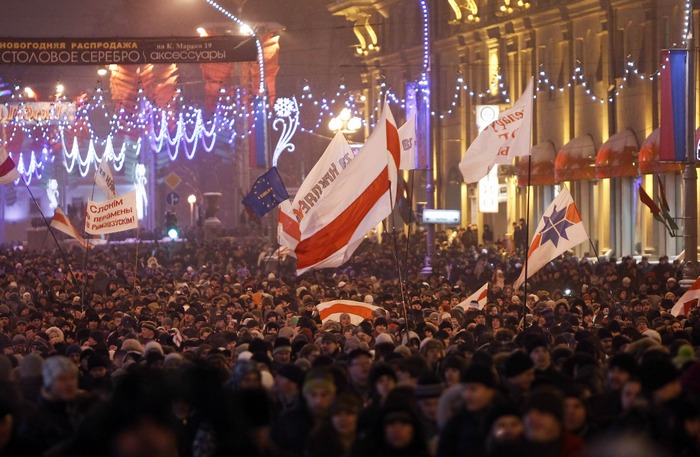
- Many did not expect revolutionary events in Belarus in 2020. You have always said that the Belarusians will rise. How did you know?
- I am us, the whole team that continued and continues to work after imprisonment and, I will not hide, betrayals. So, we did not speak but worked to make this happen. The experience of 2010 gave a lot and advanced us in understanding what and how to do in order to win. It was clear that people continue to accumulate fatigue from the callous, boorish rule of Lukashenka, that they are ready to participate in the country's life and take responsibility for solving both their practical problems and the issues of development of Belarus.
We saw that already in 2010, no one was interested in the rhetoric of some candidates who said that it was possible to integrate into this regime somewhere; it could be achieved, for example, by changing the electoral legislation. It was not interesting for people. It was interesting how we will live after the dictatorship. This interested people the most, along with how to get rid of this dictatorship. And it was clear that the people were ready in 2010 to join in more massively.
Then there were events that clearly indicated that the people would rise, the people will stop. I'm talking primarily about the 2017 protests: the decree against "parasites," which shook the whole country, actions on Freedom Day 2017. That is, it was clear that the protest moods were strong and that the regime had no means other than tightening the screws. And tightening the screws meant robbing the people, more and more robbery. This meant that it would not be possible to bring down the potential of protests. We tested these sentiments again during the political campaign related to the "parliamentary elections" in the fall of 2019 and made sure that all of Belarus is against Lukashenka.
- You are actively working on the introduction of economic sanctions against the regime. The West hesitates. How to get it to act more decisively?
- Everyone who considers themselves to be the opposition should clearly understand that sanctions are necessary to save people from violence, to free political prisoners who are innocent, including real political leaders, strong figures needed to break the deadlock.
Therefore, everyone who proclaims himself an opposition must speak at all meetings with foreign politicians, write, apply, demand the imposition of tough sanctions, say that these sanctions are morally justified as long as innocent people are in prisons, as long as the violence continues on the streets, while the regime of assassins is in power in the country.
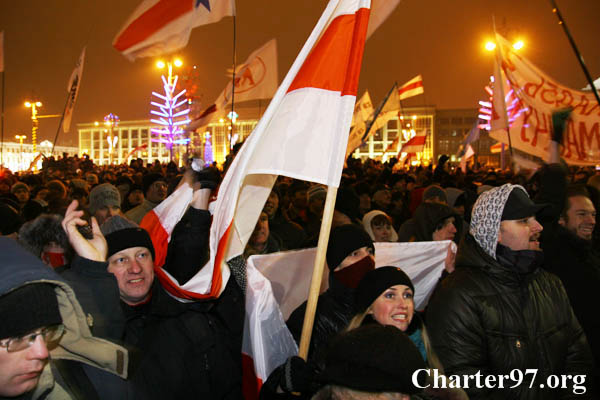
- The revolution continues. It is clear that protests will soon resume with renewed vigor. How can we win?
- We need to continue the protests, we need to seek the release of political prisoners, we need to offer people from among the security forces, from Lukashenka's entourage some ways out so that they can feel their involvement in the new Belarus, and not just drive them into the repressive apparatus of Lukashenka. We need to assess the situation soberly enough and not rush to say that we will now put everyone in jail indiscriminately, when we have not even won yet.
Yes, it is necessary to offer a way out for the whole society, except for criminals, I mean Lukashenka's inner circle. And all together to think. The West is now using the word "inclusive" dialogue, having little idea of what it is. We ourselves should think about what it is; maybe, indeed, an inclusive dialogue within Belarus, without the participation of people guilty of murdering fellow citizens, is necessary today, and we should strive for this and not stand in a pose of winners and administer a court, for which we don't have rights yet. Even a murderer should be sentenced by an impartial tribunal, not by self-appointees on one side or another.
- They say that Belarusians are too tolerant as a nation. Have we finally got rid of this myth?
- Yes, we got rid of it already. By the way, tolerance is a good quality, not to be confused with indifference. A new stage in the development of the Belarusian people was formulated by Raman Bandarenka, who was killed by the punishers, and his blessed memory. Like Raman, the Belarusian people said "I'm leaving!" and went out.
I think 2020 is as significant a milestone as Kurapaty was in 1988. When the tear gas "Cheryomukha" was used against the people in Kurapaty that year, the population that had gathered in the tract returned from it as a people. I am sure that today there has been a similar qualitative breakthrough into the future.
There are not enough superlatives to describe the feats that Belarusians perform every day today. And also unprecedented creativity in all areas, which can only be compared with the unprecedented rise of the culture of the revolutionary beginning of the last century, with the work of Marc Chagall, Kazimir Malevich, Yazep Drazdovich, Igor Stravinsky, Maksim Bahdanovich, Yanka Kupala, the creation of a national theater.
Not just the people came out, but such a rich people came out, culturally rich, rich in courage, intellect, solidarity. Those who stayed were some kind of gang that is no longer capable of anything but looting. Ridiculous and inadequate. There's no power there. The violence with which they terrorize civilians is because of powerlessness.
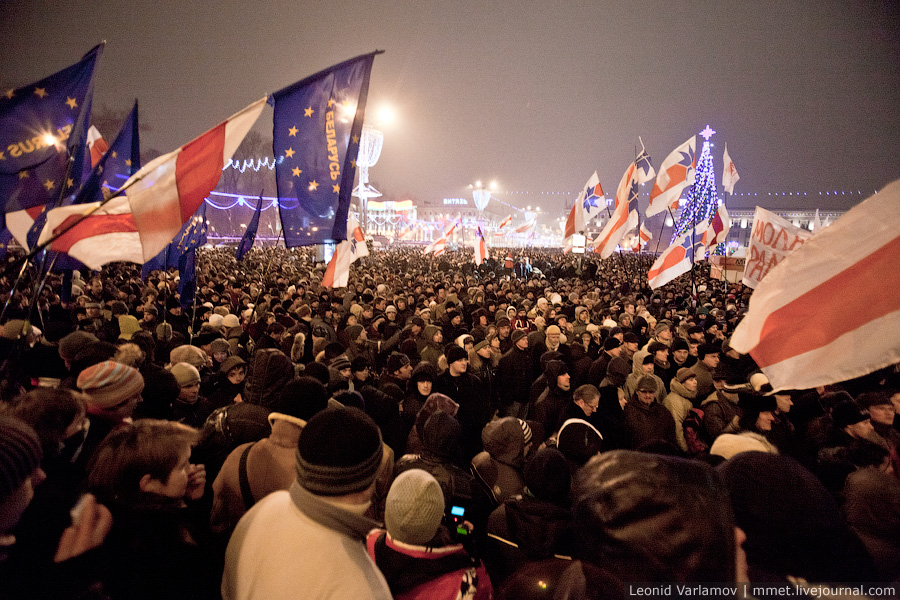
- How then to restore the country after this gang?
- To be honest, this is the least problem of all. Because the country is driven into such an economic dead end that any liberation of energy will lead to very quick and good results. If today Lukashenka had not been given loans and had not been helped, including by international financial structures, then this regime would no longer exist. And the loans went, as we see now, only for the power unit. That's it, for no one else. To the criminal business and the power bloc, and this leads to decay and destruction of the country. And this is our business. If you look at those who are called flagships, it is a feeding business, a business that exists only because it unfastens and contains this power. Even the IT industry is a "sharashka" which was created in order to feed the dictator, and at the same time, to promote him.
If we go back to 2010, then we have already seriously analyzed that there will be money for reforming the economy. And these are not just words; we sat with pencils and considered where to get them. I will not tell because I do not want even indirectly to help the current scammers at the feeder.
A strong intellectual team will be needed that will professionally look at what was happening around us, in neighboring countries, take into account mistakes, study achievements and reform the economy, find our place in the world because the place of Belarus in world development has not yet been determined.
Just do not moan that, they say, no one is waiting for us, that we are completely dependent only on Russia. They're waiting for us. Belarus without Lukashenka is awaited both in Europe and Russia.
I will say more: whether they are waiting for us or not, we went out, and we go. We go as good neighbors and as reliable and predictable partners!
